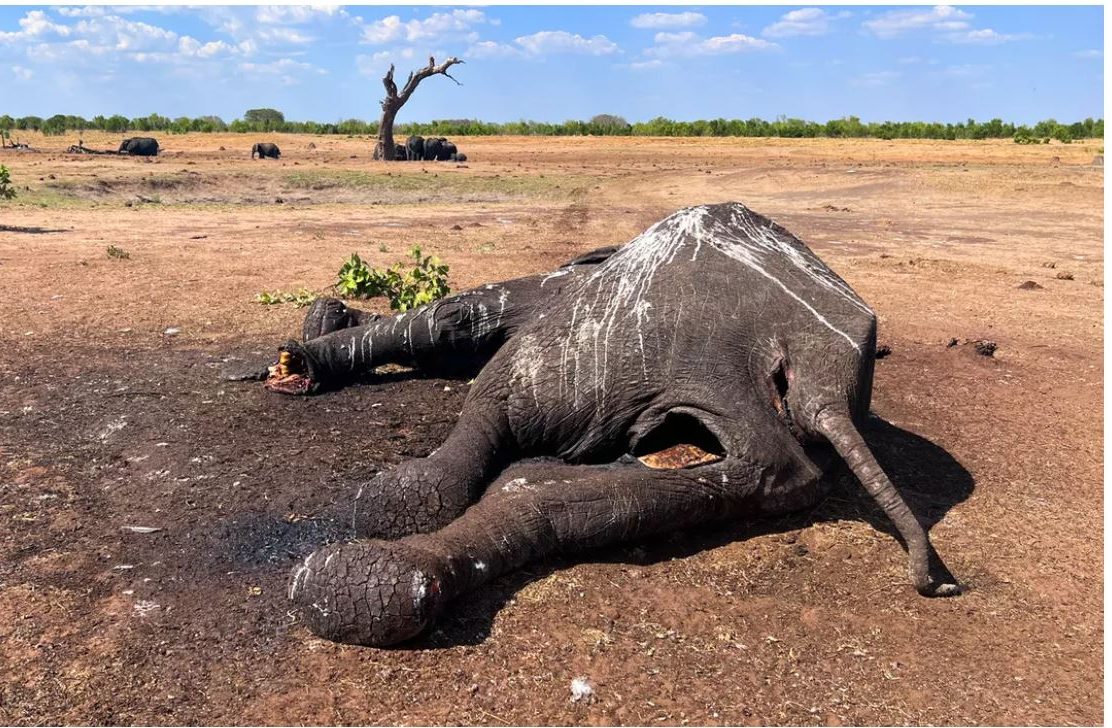Elephants and other wildlife are dying in Zimbabwe, as an extended dry season has reduced once abundant water holes, to muddy puddles.
Summer rains are five weeks late due to the ongoing El Niño phenomenon, as dozens of elephants have already died in Hwange National Park, the county’s largest protected area home to about 45,000 elephants. At least 100 elephants are already reported dead due to lack of water.
“Elephants and other wildlife species will face a crisis if the rains don’t come soon,” says Phillip Kuvawoga, Landscape Programme Director of IFAW.
“In 2019, over 200 elephants died in Zimbabwe due to severe drought; this phenomenon is recurring.”
Despite having 104 solar-powered boreholes, park authorities say it isn’t enough and no match for extreme temperatures drying up existing waterholes, forcing wildlife to walk long distances searching for food and water. Water-dependent mammals like elephants are among the most affected.
News of the tragedy comes during COP28, while global leaders gather to determine ambition and responsibilities and identify and assess climate measures at the global climate change conference in Dubai.
Hwange has no major river running through it, and animals rely on solar-powered boreholes, Zimbabwe Parks and Wildlife Authorities (Zimparks) official said.
“We are relying on artificial water because our surface water has declined. Since elephants are water dependent, we are recording more deaths,” Zimparks principal ecologist at Hwange National Park, Daphine Madhlamoto, told Reuters.
The elephant population in Hwange is 45,000, and a fully grown elephant requires 200 litres (53 gallons) of water daily. But with water sources dwindling, the solar-powered pumps at the 104 boreholes or wells have not been able to draw enough water.







